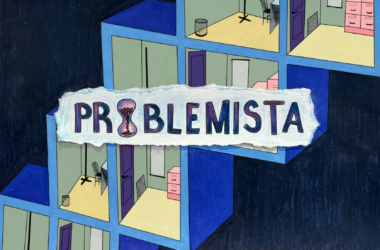
Opera de Montreal’s season-opening production of Rigoletto’s famous tunes, virile tenor solos, rousing choruses, lavish costumes, and talented cast are well worth the price of admission.
Spectators will be rewarded with a dark, compelling fable of comedy and fate. Rigoletto is the hunchbacked, misanthropic jester in the court of the Duke of Mantua—a libertine with limitless and dangerous desires who “shun[s] fidelity like a bad disease.”
Rigoletto’s bitter joking gets him into trouble when he mocks a rival count, who puts a curse on him. When the Duke falls in love with Rigoletto’s cherished daughter Gilda, the jester vows revenge. The curse, however, prevents him from doing so.
Like most operas, Rigoletto’s plot moves slowly. The tunes, however, are so catchy that you don’t even notice. The opera runs a fast two hours and 30 minutes.
That’s not to say, however, that Rigoletto is just a sequence of foot-tapping songs. Composer Giuseppe Verdi was especially good at writing simultaneously accessible and serious scores, and Rigoletto is one of his masterpieces. The quartet in Act III, in which four characters with totally different psychologies sing together in a coherent ensemble, is a world-famous piece of operatic art.
Rigoletto is a complicated, tortured character, and baritone Anthony Michaels-Moore is excellent in the role. He despises his career, his employers, and mostly himself, but he is capable of powerful, concentrated love. Michaels-Moore’s rich voice is especially strong in Rigoletto’s introspective scenes, where it soars and falls with the character’s passionate emotional cadences.
Opposite him, David Pomeroy is very good as the predatory Duke. He prowls the stage like a panther, and is by turns slyly seductive and fiercely sexual. His voice isn’t as commanding as Michaels-Moore’s, but is full of style and bravado.
In a supporting role as the lawless assassin Sparafucile, Ernesto Morillo’s broad, woody bass is also particularly memorable.
The story is set in an unapologetically male world. The Duke’s courtiers’ sing three all-male choruses that are extraordinarily energetic, and the play’s most famous tune is “La donn’é mobile,” or “woman is fickle.”
Political incorrectness aside, Gilda is a multi-dimensional character, and soprano Sarah Coburn got a standing ovation at the curtain call as she sang Gilda’s challenging vocal parts admirably.
The 16th century set and costumes further enrich the drama. (It’s worth checking out the costumed mannequins in the concourses during intermission.) The Duke’s court boasts a gaudy 25 foot tall statue of a cherub that emphasizes his decadence and lavish appetites.
If you go, you’ll want to spend some time people-watching during intermission. Montreal’s aristocrats come to the opera dressed to kill, and if you stand by the bar you can witness a steady stream of them ordering $25 glasses of champagne.
Relinquish your credit card, find a date, get dressed up, and see Rigoletto. It’ll be a grand game of make-believe as you watch the actors onstage with your opera glasses and pretend you’re rich and famous.
Rigoletto is playing at Salle Wilfred-Pelletier, Place des Arts. Tickets are $30 each for two productions (it’s probably the cheapest opportunity you’ll ever have to see an opera like this).








